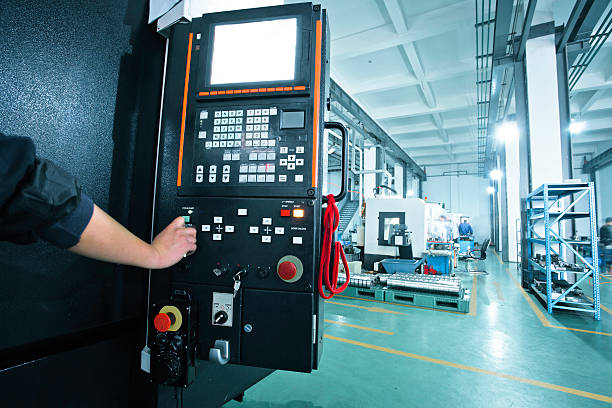What Makes Aluminum Foundries Critical for Electric Vehicle Manufacturing
Discover how aluminum foundries, like BQC Foundry, optimize electric vehicle components with precision engineering and timely, efficient production processes.
Electric vehicles (EVs) are changing the transportation landscape. As the world moves towards cleaner and more sustainable options, the demand for effective EV production methods grows. Aluminum foundries play a key role in this shift. They provide the essential components needed to manufacture vehicles that are light, durable, and energy-efficient. Their work ensures that each vehicle operates at its best, providing a smooth and reliable ride.
The need for high-quality aluminum castings cannot be overstated. They are critical for the performance and efficiency of electric vehicles. From making the vehicle light to increasing its strength, these components are central to building superior electric cars. By ensuring that each part is crafted with precision, foundries contribute to vehicles that deliver better performance while consuming less energy. This focus on quality and efficiency helps lead the charge toward a more sustainable future in transportation.
The Role of Aluminum in Electric Vehicle Manufacturing
Aluminum plays a huge part in making vehicles lighter and more efficient. It offers remarkable advantages over other materials due to its combination of light weight and strength. This makes it perfect for electric vehicles that need to maximize energy efficiency. Here’s where you’ll see aluminum making a big difference:
– Lightweight Components: Aluminum helps reduce the overall weight of a vehicle without compromising strength, improving efficiency and range.
– Key Areas of Use: It’s commonly used in parts like the chassis and battery housings, providing a solid structure that supports the electric system.
– Enhanced Safety: Aluminum’s ability to absorb impact makes it ideal for constructing safer vehicles.
These benefits highlight why it is such a popular choice among manufacturers. Aluminum’s use in key vehicle parts not only helps improve overall performance but also adds to the safety and durability of electric vehicles. By focusing on these advantages, manufacturers can continue to innovate, crafting cars that meet modern demands for both efficiency and sustainability.
How Aluminum Foundries Support Better Part Production
Producing high-quality vehicle parts requires specialized techniques that aluminum foundries are uniquely equipped to offer. First off, foundries use sophisticated methods to ensure every component made meets exacting standards. This process enhances precision and consistency across production, crucial for EV parts under constant strain.
– Precision Techniques: These include using advanced casting methods that result in consistent, defect-free parts.
– Efficient Production: By implementing modern technology and processes, foundries manage to reduce waste and speed up production times.
– Meet Growing Demand: As the electric vehicle market expands, foundries help scale up production to meet increasing demands.
These work practices focus on reducing defects in the casting process, which is vital for components in electric cars. A defect-free part ensures that the vehicle performs reliably, reduces the need for frequent repairs, and extends the lifespan of the vehicle. Foundries also play a critical role in supporting the production volume needed to meet the growing market demand for electric vehicles. By adopting new technologies and streamlining their processes, they make sure that every order is met with speed and accuracy.
Ensuring On-Time Orders with Efficient Casting Processes
Timely production in aluminum foundries doesn’t just happen by chance. It takes careful planning and execution with modern processes to keep things running smoothly. When foundries use updated methods, orders are completed on schedule, ensuring that EV manufacturers can meet their timelines.
One of the key factors is the use of advanced technology and equipment. By integrating automated systems, foundries can streamline operations, which cuts down on production time significantly. For example, automated mold-making tools help speed up the initial stages of casting, allowing for more rapid turnover and reducing waiting periods.
Another area that contributes to on-time delivery is precise supply chain management. Foundries monitor the movement of materials closely, ensuring that every part of the process flows without unnecessary interruptions. Effective communication and coordination with suppliers mean fewer delays and a more predictable output schedule.
The adoption of lean manufacturing principles also plays a big role. These methods focus on reducing waste and improving productivity. By continuously analyzing their processes, foundries can identify and eliminate inefficiencies, ensuring they operate at top capacity and meet the growing demands of the EV industry.
The Importance of Engineering Expertise in Aluminum Foundries
Engineers are the backbone of successful aluminum foundries, and their expertise is what makes it possible to produce high-quality EV components. Their detailed understanding of materials and design principles ensures that every cast part meets specific standards and specifications.
Engineers contribute by designing castings that enhance vehicle performance. For instance, they work on optimizing the cooling paths within engine components to improve heat dissipation, which boosts overall vehicle efficiency. This level of detail in design not only enhances part functionality but also extends the lifespan of each component.
Their knowledge helps streamline the casting process as well. Engineers develop methods that minimize defects by identifying potential issues early in the design stage. Techniques like simulation modeling allow them to foresee and rectify any problems before production begins, ensuring that the final product is both durable and reliable.
Having skilled engineers also means that foundries can adapt to new demands and innovate more quickly. As electric vehicle technology evolves, the ability to adjust and improve casting processes in real-time becomes invaluable. This adaptability keeps foundries at the forefront of production excellence, continuously pushing the boundaries of what’s possible in EV manufacturing.
Partnering for Success
High-quality aluminum castings are central to creating superior electric vehicles. They help manufacturers build cars that are not only efficient but also reliable and safe. With timely production and engineering excellence, foundries ensure that every component performs as expected, supporting the seamless integration of these vehicles into everyday life.
By working with expert foundries, manufacturers can depend on the production of top-notch components that enhance the performance and longevity of electric vehicles. As the demand for cleaner transportation grows, the partnership between EV manufacturers and aluminum foundries will remain a cornerstone of innovative vehicle production. This collaboration drives both industries toward a future that values high-caliber craftsmanship and sustainability.
Partnering with BQC Foundry ensures you receive high-quality components designed for precision and efficiency. With a strong commitment to timely production and superior craftsmanship, BQC Foundry helps enhance the performance and sustainability of electric vehicles. Learn more about our expertise in aluminum foundries and discover how our advanced casting solutions can support your next project with reliability and innovation.


